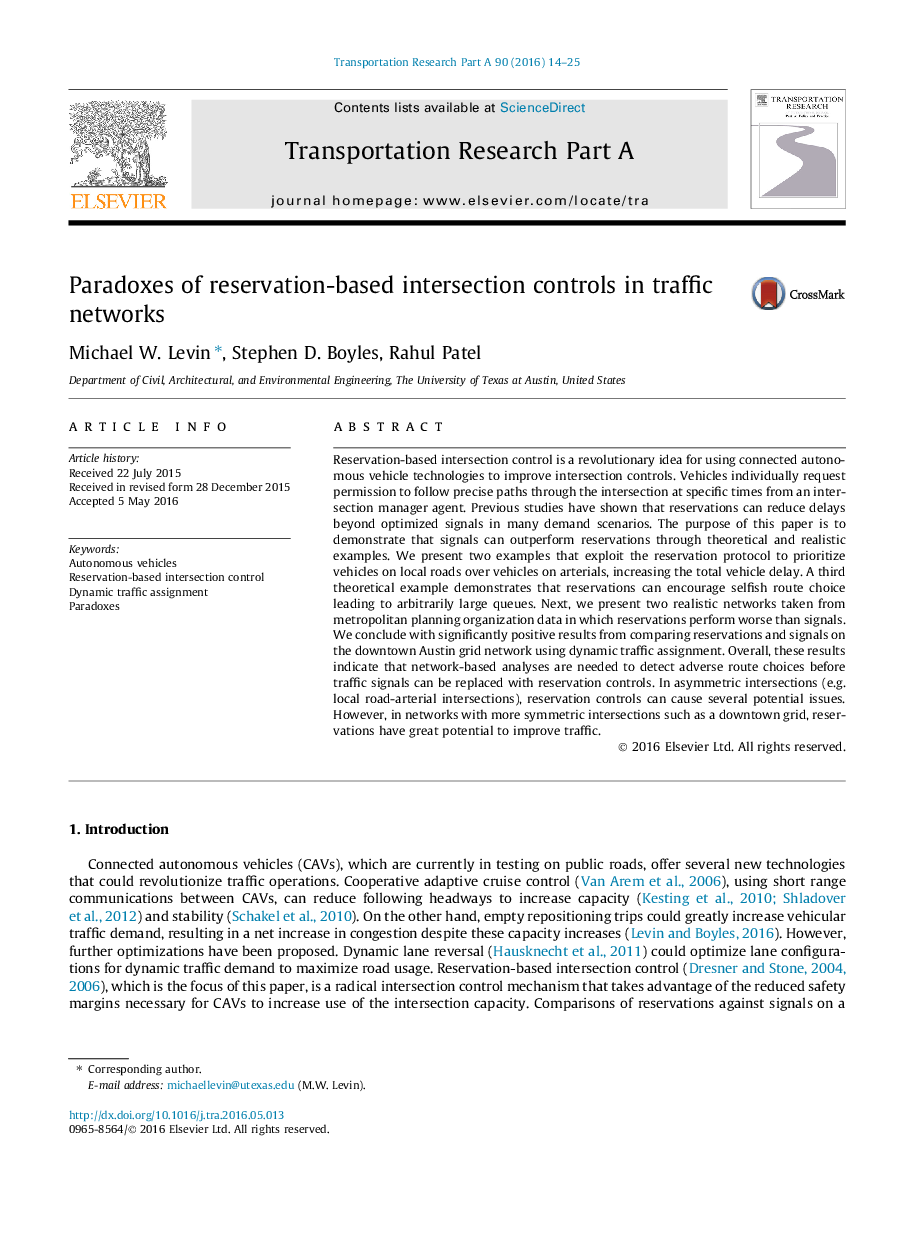| Article ID | Journal | Published Year | Pages | File Type |
|---|---|---|---|---|
| 6780812 | Transportation Research Part A: Policy and Practice | 2016 | 12 Pages |
Abstract
Reservation-based intersection control is a revolutionary idea for using connected autonomous vehicle technologies to improve intersection controls. Vehicles individually request permission to follow precise paths through the intersection at specific times from an intersection manager agent. Previous studies have shown that reservations can reduce delays beyond optimized signals in many demand scenarios. The purpose of this paper is to demonstrate that signals can outperform reservations through theoretical and realistic examples. We present two examples that exploit the reservation protocol to prioritize vehicles on local roads over vehicles on arterials, increasing the total vehicle delay. A third theoretical example demonstrates that reservations can encourage selfish route choice leading to arbitrarily large queues. Next, we present two realistic networks taken from metropolitan planning organization data in which reservations perform worse than signals. We conclude with significantly positive results from comparing reservations and signals on the downtown Austin grid network using dynamic traffic assignment. Overall, these results indicate that network-based analyses are needed to detect adverse route choices before traffic signals can be replaced with reservation controls. In asymmetric intersections (e.g. local road-arterial intersections), reservation controls can cause several potential issues. However, in networks with more symmetric intersections such as a downtown grid, reservations have great potential to improve traffic.
Related Topics
Physical Sciences and Engineering
Engineering
Civil and Structural Engineering
Authors
Michael W. Levin, Stephen D. Boyles, Rahul Patel,
